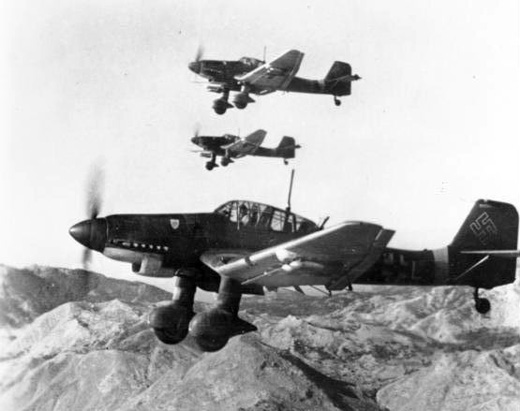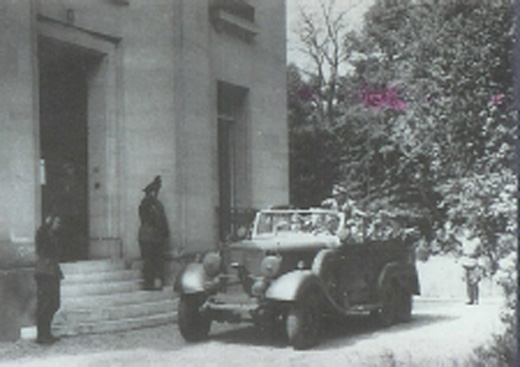Air Operations, Europe
There are scattered raids over Yorkshire, East Anglia and Essex. 8 people are injured at Middlesbrough, the first civilian casualties in an air raid on England. The RAF bomb Cologne marshalling yards during the night.
[Allied Planning
The Supreme War Council decides to end its involvement in Norway. They agree to capture Narvik and destroy the port facilities before they will evacuate. Ironically the airfield at Bardufoss has only just received its first complement of British aircraft and already the campaign is seeming less one-sided, showing what might have been done. The Norwegians are not yet told of the decision to leave.
[Atlantic
- British cruisers and destroyers give supporting fire in the Calais sector. The French destroyer Chacal is bombed and sinks off Boulogne. 21 survivors from the Chacal are rescued by the French submarine chasers CH.5 and CH.42.
- The British destroyer Wessex is sunk by German bombing off Calais with the loss of 6 of her crew. The British destroyer Vimiera and the minesweeping trawler John Cattling picks up the survivors.
- The French auxiliary minesweepers La Matelot (260t) is sunk by German bombing and the Etoile de Nord (317t) by a mine at Dunkirk.
Junkers Ju-87 Stuka (German Dive Bombers) |
 |
Battle of the Atlantic
- The British steamer Brighton (2391t) is sunk by German bombing at Dieppe Quay. She had been badly damaged in a bombing attack on the 21st. No crew is on board.
- U-37 sinks the Greek steamer Kyma (3994t) 175 miles south of Cape Clear with the loss of 7 crewmen.
Secret War
The British Government Code and Cipher School begins regular transmissions of de-coded German 'Enigma' messages to GHQ, BEF, and RAF HQ in France.
[Western Front
The German 2nd Pzr Div launches a violent attack on Boulogne. Farther along the coast the 10th Pzr attacks Calais. The Royal Navy is active in support of the British forces in both towns. During the day and later in the night destroyers are used to evacuate 5,000 men from Boulogne and over the next 3 days 2 light cruisers and 7 destroyers are in support near Calais. After the destruction of many reinforced concrete works by heavy artillery and demolition charges, the French fortress of Maubeuge surrenders. There are also German attacks on the line of the Lys and around Tournai. Tournai and Ghent fall to the Germans. The plans for an Allied counteroffensive depend on the Belgians being able to take over a longer section of the front but with this pressure they will not be able to do so.
The Army Headquarters in Charleville on May 24, 1940 |
 |
The partial halt of the main German armored forces already made by von Rundstedt is confirmed by Hitler. They have reached the line Gravelines-Omer-Bethune. Although the ground north of here is not well suited to armored action the Allied defenses are weak. The pause, which lasts until the morning of the 27th, gives the French & British time to strengthen this position and is generally seen as being the move which makes the evacuation of the BEF possible. The motives for Hitler's decision can only be guessed. Certainly the armored forces are in need of a rest. Equally, Göring is pressing for the Luftwaffe to be given a bigger share of the action and the consequent glory. There may also be some truth in the suggestions that Hitler is deliberately being soft on the British in the hope that they can be persuaded to come to terms in the near future.[MORE]
[